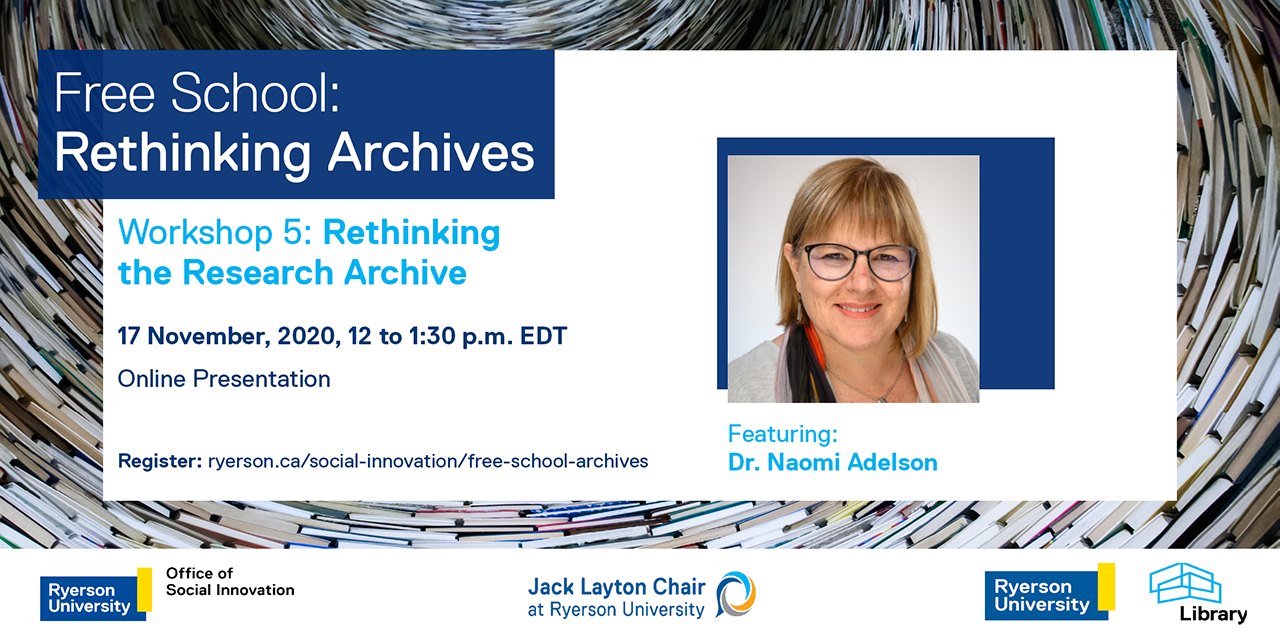Free School: Rethinking Archives
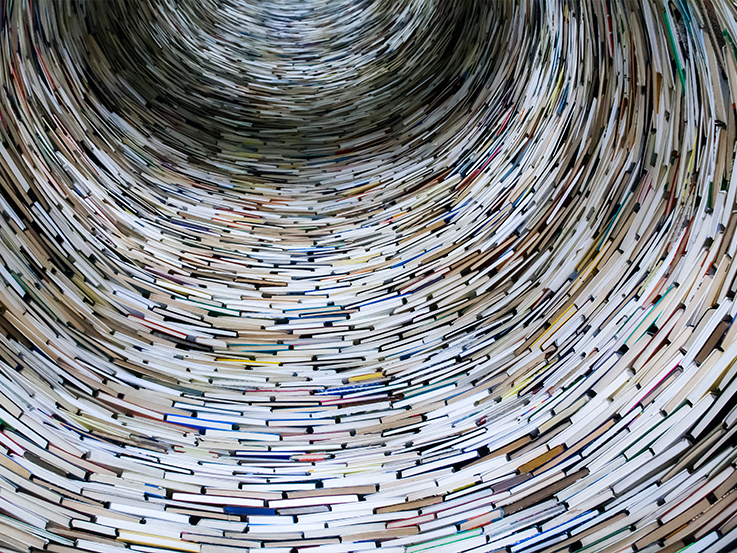
The Free School: Rethinking Archives is an interdisciplinary series comprised of five workshops exploring archival practice and its connection to public citizenship. Building on the experience of the Ai Weiwei Free School (2019), this time we explore the archival work of scholars affiliated with Toronto Metropolitan University (TMU). Sessions bring attention to the value of the archives as a repository of history and measure of our past, while acknowledging limits in representation and modes of historical recording. Expanding the discussion of the archive, workshop leaders explore sources seldom considered, methods that stand outside of formal practices, voices excluded from historical record keeping, and the social and dialogical aspect of archiving and representing communities and cultures.
Co-Presented by: Ken Moffatt, Jack Layton Chair, Melanie Panitch, Executive Director, Office of Social Innovation, & Curtis Sassur, Archivist, Toronto Metropolitan University Library.
The Free School event series is now closed.
Past Worskhops
Workshop 1: Literary Scholarship and Archival Research
Location: LIB 404, Archives & Special Collections, Toronto Metropolitan University Library, 350 Victoria Street, 4th Floor.
Presenters: Lauren Kirshner and Ruth Panofsky, Department of English
Description: Prof. Lauren Kirshner, Department of English, interviews publishing historian Prof. Ruth Panofsky, Department of English, about the use of archival source material in her research. Over the course of her career, Panofsky has studied the publishing careers of prominent writers; publishing houses; and the role of women in Canadian publishing.
This interview will consider how essential – and challenging – archival research is to the literary scholar. Emphasis will be placed on research undertaken for Panofsky’s most recent book, Toronto Trailblazers: Women in Canadian Publishing (2019) and her forthcoming volume of poetry, Radiant Shards: Hoda’s North End Poems (2020).
This workshop took place on March 4, 2020.
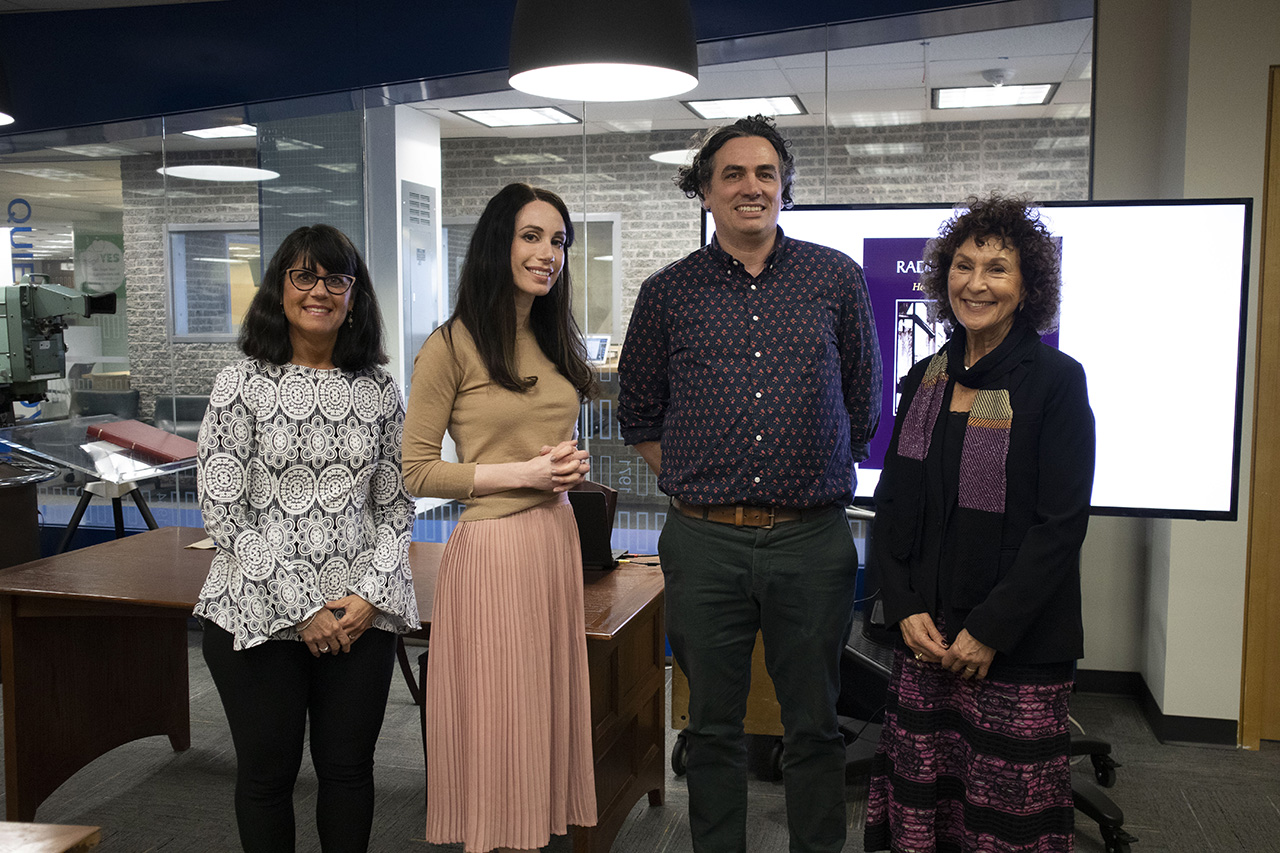
Pictured from left to right: Ruth Panofsky, Lauren Kirshner, Curtis Sasur, and Melanie Panitch.
Workshop 2: The Fade Resistance Collection and Ways of Caring
Location: LIB 404, Archives & Special Collections, Toronto Metropolitan University Library, 350 Victoria Street.
Presenters: Sophie Hackett and Zun Lee (AGO)
Description: In 2018, the Art Gallery of Ontario (AGO) acquired the Fade Resistance Collection of more than 4,000 photographs of African American family life, put together by photographer Zun Lee. The acquisition sparked a 3-year initiative – Ways of Caring – to engage Toronto’s public with these photographs. In this workshop, AGO Curator, Photography, Sophie Hackett, and Lee discuss the range of ways they have worked with vernacular photographs as a means of highlighting the importance of preserving visual culture at individual and institutional levels.
This workshop took place on March 11, 2020.
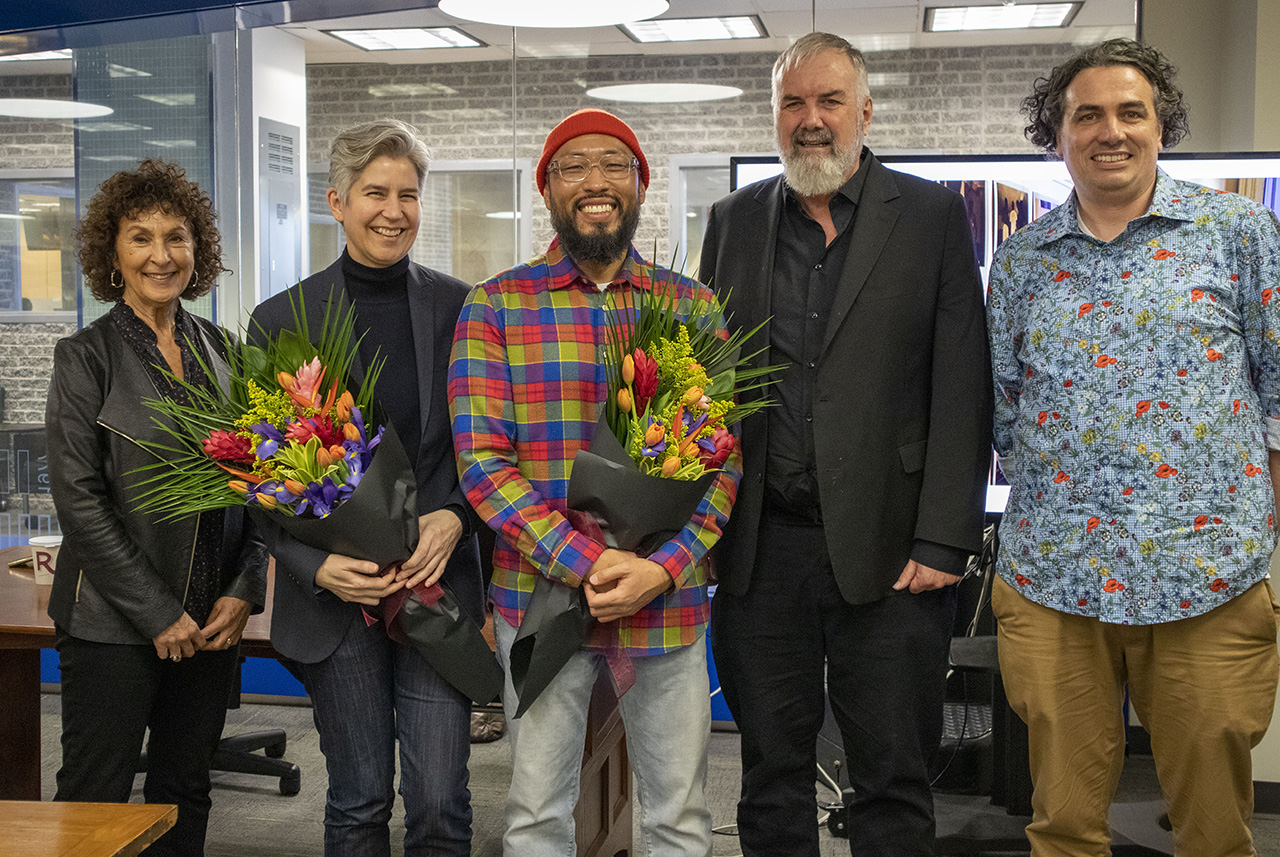
Pictured from left to right: Melanie Panitch, Sophie Hackett, Zun Lee, Ken Moffatt, and Curtis Sassur.
Workshop 3: How to Navigate Archives with Missing and/or Incorrect Information
Presenters: Dr. Cheryl Thompson
Description: Descriptive metadata is commonly defined as “data about data.” There are different types of metadata, such as administrative metadata that may include such things as the date and source of acquisition. For people using archives, descriptive metadata is what often matters to us most. This includes information about the content and form of the materials. In this talk, Dr. Cheryl Thompson will provide advice on how to navigate archives when descriptive metadata is either missing, incomplete or incorrect. With the aim to provide attendees with tools for navigating around these challenges and for rethinking keyword searches when engaging in archival work on historically marginalized groups such as racial and ethnic minorities, women, LGBTQ, and Indigenous communities.
This workshop took place on September 29, 2020.
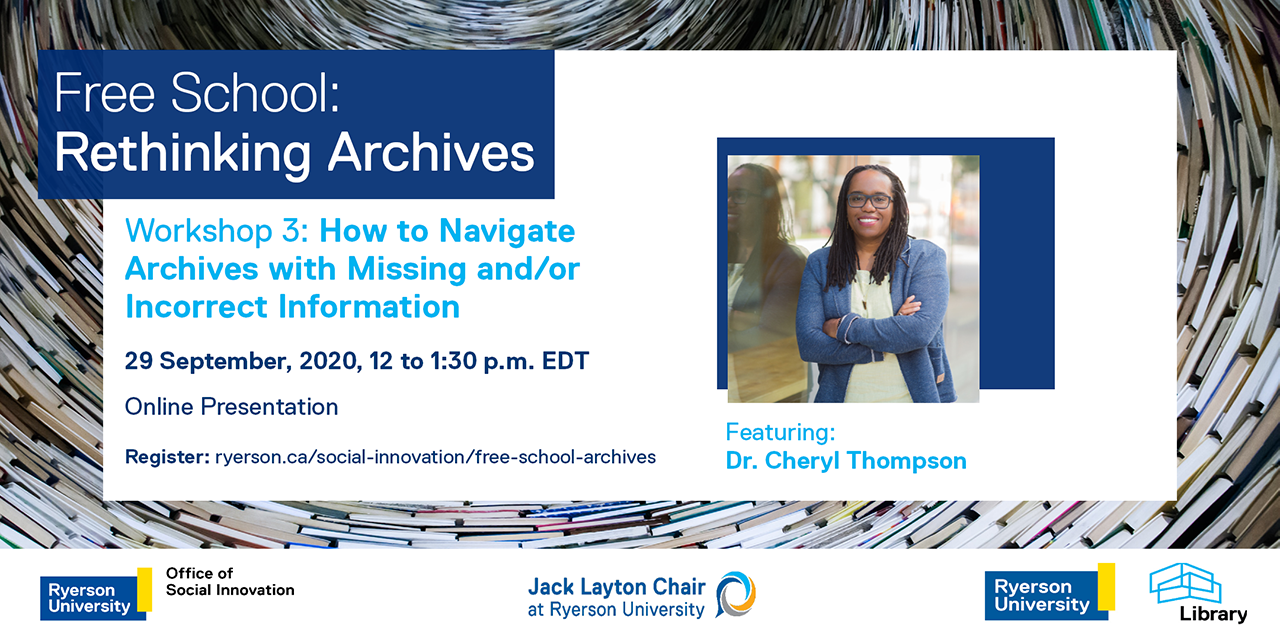
Workshop 4: Archive/Textiles/Race
Presenters: Desmond A. Miller
Description: Artist and researcher Desmond A. Miller discusses his artistic practice and the multi-layered meanings stored in quilts. In his talk, Miller will share references that have influenced his projects, and explore the quilting practices used by women of African descent across the world for memory, memorializing, and community-building. He will also speak about his current work Aesthetics of the Archives—an intergenerational storytelling project that explores his Caribbean and European ancestry through a focus on his paternal family’s location within the Black diaspora. Using poetry, textiles and photography, Miller will share works-in-progress that imagine different ways of representing an archive aesthetic.
This workshop took place on 21 October, 2020.
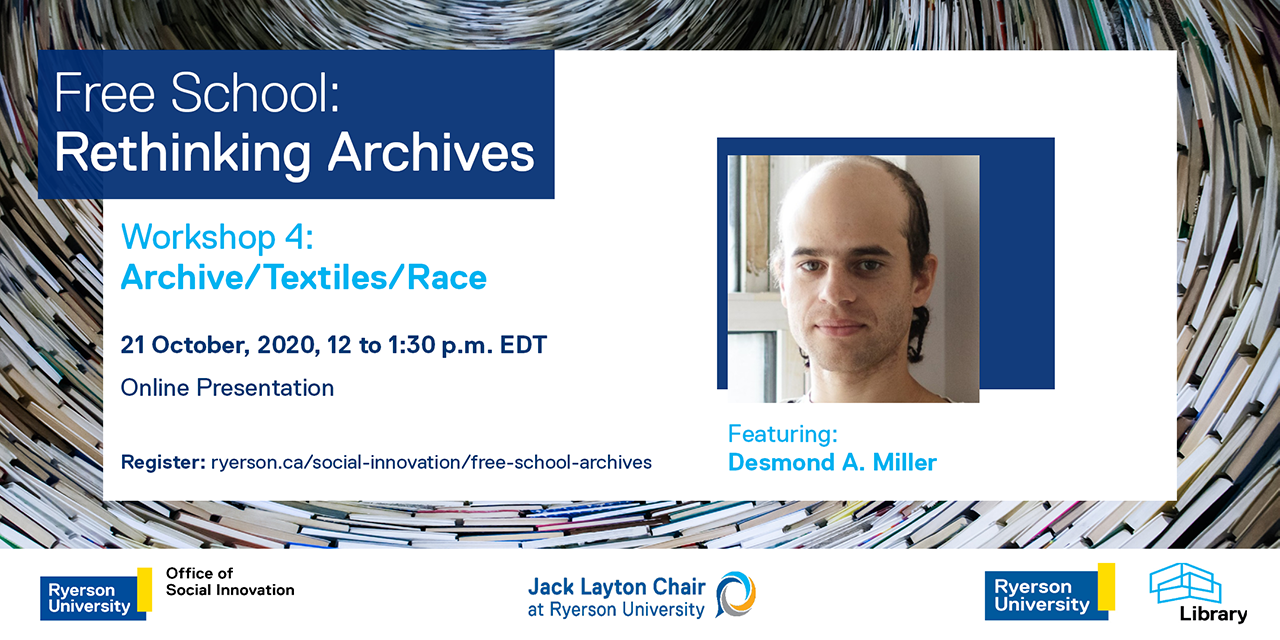
Workshop 5: Rethinking the Research Archive
Presenter: Dr. Naomi Adelson
Description: Naomi Adelson, associate vice-president, research and innovation, discusses a thirty-year collaborative research relationship with a small Eeyou (Cree) community in northern Québec. The work has been translated into a considerable archive of primary data. The question now is: how can an accumulated qualitative research data set become an accessible, safely preserved resource for the community? Rethinking the archive today means understanding the principles of conducting research with Indigenous communities. In this workshop, Adelson explores how we think about the archive within a First Nations community and the processes that need to be undertaken in transferring, storing, and ensuring accessibility of research data to community partners and members.
This workshop took place on 17 November, 2020
